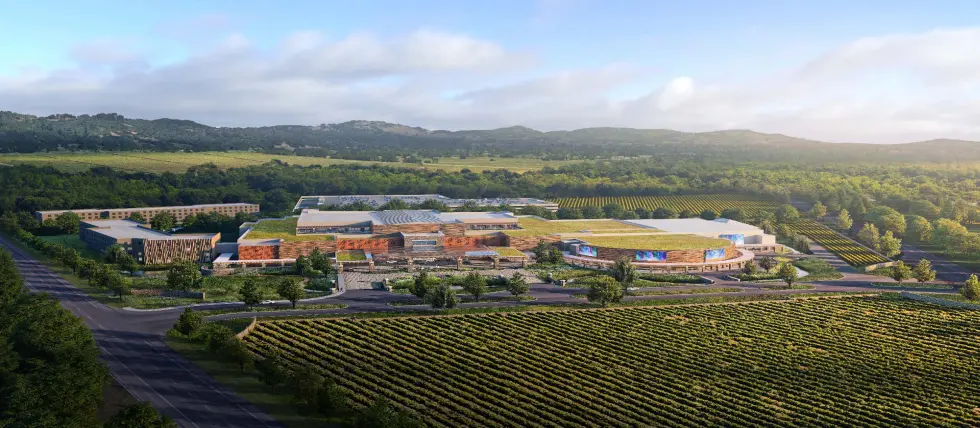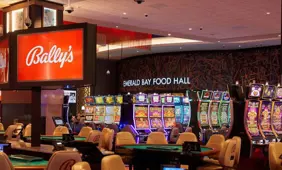California Files Lawsuit Against Federal Government over Tribal Casino
California has filed a federal lawsuit challenging the US Department of the Interior's approval of a large-scale tribal casino project proposed by the Koi Nation of Northern California. Gov. Gavin Newsom and the State of California initiated legal proceedings in the US District Court for the Northern District of California, asserting that the federal government overstepped its authority and disregarded established legal protocols in granting the tribe permission to develop the casino in Sonoma County.

The casino project, which would be constructed on 68.6 acres known as the Shiloh Site near the town of Windsor, includes plans for 2,750 slot machines, 105 table games, a 400-room hotel, and amenities capable of accommodating over 10,000 guests. The site is located in a region well known for its agricultural and wine-producing industries. The scale and location of the project have raised concerns among state officials and neighboring tribal governments.
Related: Federal Judge Rules in Favor of Koi Nations $600M Casino PlanAt the heart of California's lawsuit is the contention that the Department of the Interior improperly applied the "restored lands" exception under the Indian Gaming Regulatory Act (IGRA). This provision allows gaming on lands taken into trust for tribes restored to federal recognition, under specific circumstances. The state argues that the Shiloh Site does not qualify as restored land within the meaning of the act and that the decision to approve the project was made without the proper procedural safeguards, including the required consultation with state and local authorities.
The plaintiffs argue that the Interior Department failed to provide sufficient justification for its conclusion that the Shiloh Site qualifies as restored land. The state maintains that the record lacks adequate evidence of an enduring, collective tribal presence on the property. According to California, historical trade routes and census records cited by federal officials do not meet the threshold for establishing a historical connection necessary to invoke the restored lands exception. Furthermore, the state distinguishes between the presence of individual tribal members in the past and an ongoing, collective tribal connection that would support the legal designation.
California's legal filing emphasizes the stronger historical and cultural ties the Koi Nation has to the Clear Lake region, located roughly 30 miles from the Shiloh Site. The state highlights documented Indigenous habitation, ancestral villages, and burial grounds in the Clear Lake area, which it asserts better represent the tribe's historical homeland. The plaintiffs argue that approving gaming on the Shiloh Site, rather than within the tribe's ancestral lands, weakens the integrity of the IGRA's limitations and intentions.
More Business News
California Gaming Control at Risk
The lawsuit also takes issue with the Interior Department's methodology for addressing gaps in the historical record. Federal officials indicated that they resolved perceived inconsistencies in favor of the Koi Nation, referencing judicial precedent and legislative intent.
However, the state contends this approach is legally unsound and fails to meet the standard for impartial administrative decision-making. The plaintiffs point out that other federally recognized tribes in the region, including the Dry Creek Rancheria Band of Pomo Indians and the Federated Indians of Graton Rancheria, have expressed strong opposition to the casino project and have filed separate legal challenges.
California further argues that the federal decision contradicts the promises made to voters when they passed Proposition 1A in 2000, which authorized tribal gaming under the condition that such operations would be geographically limited and carefully regulated. The state asserts that the new casino development contravenes that framework and imposes unwarranted responsibilities on California, including the legal obligation to negotiate a gaming compact with the Koi Nation. Should negotiations break down, the state could lose its regulatory authority over gaming at the site.
In its legal complaint, California seeks to have the Interior Department's decision overturned. It also requests a declaratory judgment affirming that the Shiloh Site does not qualify for gaming under the restored lands exception of the IGRA. Through this action, the state aims to reinforce its role in regulating casino development and to ensure that federal agencies do not bypass consultation and oversight requirements.
RELATED TOPICS: Business
Most Read
Must Read
 Interviews
Interviews
Sweepstakes Casinos: Thriving in an Ever-Changing Industry – Interview with Attorney Stephen C. Piepgrass
Feb 17, 2025 Interviews
Interviews








Review this New Post
Leave a Comment
User Comments
Comments for California Files Lawsuit Against Federal Government over Tribal Casino